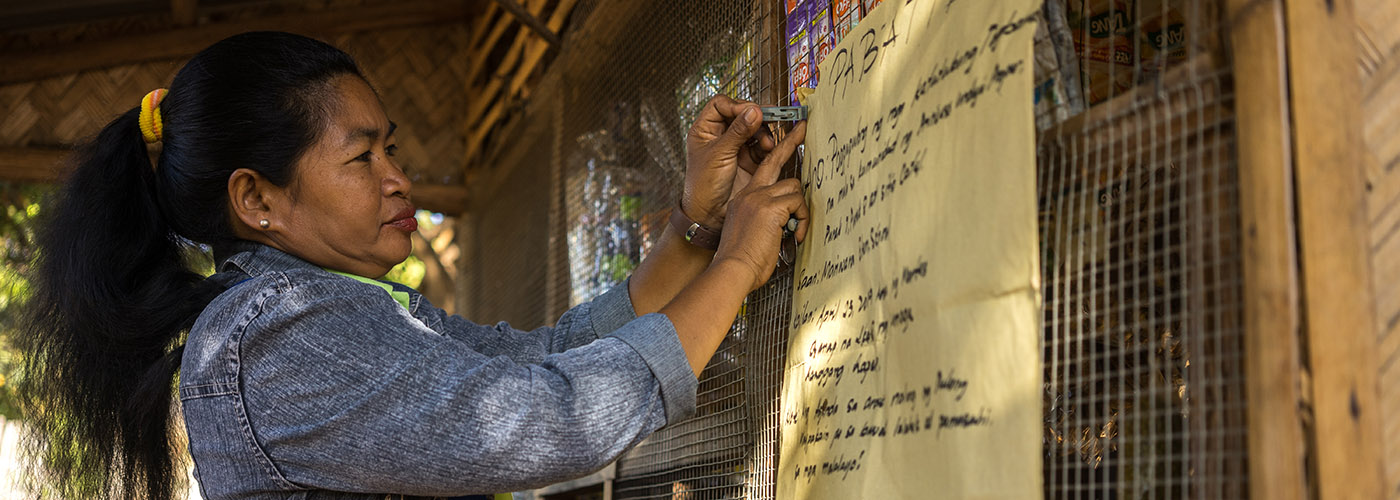By Conrad Zellmann, Impact Lead for Civic Rights in a Digital Age
Societies everywhere find themselves amidst a storm of challenges. Inequality and discrimination, weak defenses against corruption, and widespread disinformation undermine our ability to confront the global Covid-19 pandemic and the climate crisis.
This week we celebrated Open Government Week. The values that are central to open government – participation, inclusion and accountability – provide the very compass we need in the response to Covid-19 and the renewal of our societies. They are central to achieving a fundamental orientation of public policy towards upholding civic rights, promoting inclusion and realizing a just climate transition.
The challenges we face
The Covid-19 pandemic has deepened long-standing fault lines. Already marginalized groups like women, LGBTIQ+ people and Indigenous communities have been disadvantaged the most, while politically-connected companies were able to benefit from questionable Covid-related government contracts.
The narrowing of civic space has accelerated in countries where governments use Covid-19 restrictions as a pretext to further undermine freedoms of speech, assembly and expression. Social justice protests have been systematically met with excessive force. The digital transformation of all aspects of life, hastened by Covid-19 stay at home orders, has excluded underrepresented groups even further. Public and private actors misuse digital tools to surveil, categorize and disempower people. And as Covid-19 continues to absorb the world’s attention, the worst impacts of the climate crisis are being acutely felt by those who are least responsible for causing it.
Open government for just responses
Just and equitable responses to the challenges our societies face are impossible without openness.
The OGP framework has played an important role in expanding transparency in key areas such as public spending. This enables journalists, activists and officials to uncover and prevent illicit or wasteful deals. Their work is particularly needed now, as numerous Covid-related procurement scandals all over the world have shown. So opening up data and decisions on public spending, especially procurement, for Covid-19 response and recovery should be a top priority. Our colleagues in East Africa lay out a clear case for action by OGP members: we need full public access to spending data, civic participation and oversight of recovery measures, and there must be accountability for misuse of public funds.
The digital transformation and the climate crisis raise fundamental questions of justice. Access to information and the co-creation of public responses by government and civil society are among the core open government approaches that we need. They are essential to the design and oversight of digital policies and infrastructure that guarantee human rights. They are indispensable to the transparency and accountability of climate policy and finance.
A renewed focus on co-creation and inclusion
Across these and other policy areas, open government commitments need to enable and respond to the participation of communities that have too long been relegated to the sidelines. The founding credo of OGP – the collaborative design and implementation of reforms by civil society and government – should ensure that traditionally underrepresented groups are able to truly participate in designing, implementing, and monitoring public policies. This is essential to ensure a more just renewal of our societies. Many in the open government community are sincerely committed to inclusion and diversity. Yet much more work and learning is needed to build sustained collaboration between open government reformers and rights-holder groups.
A redoubled focus on inclusion and sustained participation is particularly relevant at the local level. More than 80 sub-national governments have now joined the OGP. This presents a major opportunity for co-creating and implementing Action Plans backed by solid commitments and concrete actions to foster civic space, end exclusion, and achieve just climate transitions at the local level.
Our contribution
In our Strategic Compass 2021-2024, we have outlined three impact areas that Hivos will contribute to: Climate justice, Gender equality, diversity and inclusion and Civic rights in the digital age. The work of open government reformers is crucial to progress in all of these.
In the coming years, Hivos will continue to be a partner to the civil society and government reformers who lead open government reforms, and the activists and media actors who critically accompany and build on them in their work.
One particular focus for us will be support for open governance at local levels, for example through work on transparency and accountability in Kenya’s Covid-19 response and the PROTECT program. In our work with independent content producers, for example in Tunisia and more broadly in Africa and MENA, programs such as All Eyes on the Amazon, and within new partnerships in support of climate justice, LGBTIQ+ and SRHR activists, we will support digital security and the use of technology for social justice and human rights.




